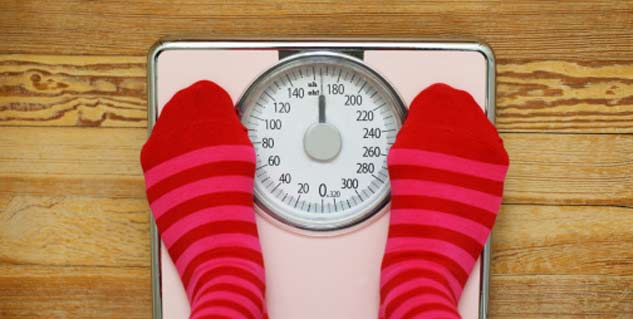Could Lasting Health & Weight Loss Really Be As Simple As This?

All eyes fixated on her svelte physique as she strolled into the room wearing a fitted, strapless black dress. Everyone at my table speculated how she could have lost 15 pounds since the last time we'd seen her three months ago.
"I bet she dumped gluten and sugar," I said.
"Oh, I know she started lifting heavy," my friend said. "I mean, look at those arms!"
Another whispered something about getting more sleep and other "lifestyle improvements."
When we actually decided to ask the woman in question, what she revealed was fascinating. Yes, all the things we'd speculated had indeed contributed to her fabulous new body, but the thing that had really moved the needle faster for lasting fat loss had nothing to do with diet and exercise.
"I wrote down everything I ate," she said. "I kept an extensive food journal that documented measurements, how much I slept, my exercise, my mental and physical state that day … Pretty much everything that tracked weight loss."
A study from The Center for Health Research involving nearly 1,700 participants inspired that discipline. The study, published in the American Journal of Preventive Medicine, found those who wrote everything down lost twice as much weight as those who didn't. If a supplement or superfood made that claim, we'd line up around the block to buy it!
"The more food records people kept, the more weight they lost," says Jack Hollis, PhD, lead author of the study.
I implored all of my one-on-one clients to do the same: My one rule was for them to write everything down or they were "fired." Some initially found it harsh, but journaling held them accountable and helped me pinpoint obstacles that potentially created weight loss resistance.
Journaling also works because you can only change what you can measure.You won't have any idea where you've ended up if you don't know where you started.
Maybe you're doing everything correctly, yet your weekly measurements don't reveal progress. You can go back and say, "Hey, am I eating sneaky sugars? Is gluten or another food intolerance slipping into my meals? Am I eating too much?"
Journaling can provide a harsh reality check. "I can't believe I ate that much," clients confessed. Others would only want to show me the good days. "You don't want to see Wednesday," one said. "It started off well, and then…" Nope, I want to see the good AND bad days.
That's how we get ourselves in trouble. We don't see the big picture and how meal after meal, day after day, sneaky sugar, food intolerances and other problem foods can creep in.
A quick glance at a food journal can show if you haven't eaten enough in a day (that's why you don't have any energy!), you went too long between meals (that's why you have a headache) or you didn't drink enough water (that's why you're hungrier than ever!).
Food is information. Your fork is the most powerful way to impact your weight, mood, energy, joint pain and the rate you age. A journal simplifies connecting the dots between what you're eating and how you feel.
While some people prefer apps or other digital devices to track food intake, pen and paper will do just fine. I recommend you go beyond food intake and also track your sleep, stress levels, supplement intake and other factors that contribute to fast, lasting fat loss.
Remember: This journal is yours and ultimately, it becomes an incredibly helpful, revealing journey about fat loss and optimal health. How you do one thing is how you do everything. The more effort you put into your food journal, the more you'll benefit.
Do you track food intake? Share how you do it below.
Photo Credit: Shutterstock
-
Weight Loss Tips – Lose Weight With The Mediterranean Diet
Holidaying in Southern Spain this year we enjoyed the Mediterranean
-
Secrets To Get A Flat Tummy Fast
Every individual young or old like to have a trim body with a flat tum
-
Understanding The Subconscious Mind
First things first, is that we need to know just what kind of mind is
-
Fat Burning Furnace and the Principles in Losing Weight
People today already know the importance
-
This Simple Diet Trick Will Make All the Difference to Your Progress
Fad diets, hacks and other diet strategies that attempt to cut corners
-
Weight Loss Tricks - Which Diet Should I Go With?
The definition of Diet plan is the Type and volume of food prescribed
- DON'T MISS
- Dangers of Obesity and its affects on Diabetes
- Use Alpha-Lipoic Acid To Lose Weight
- Does Your DNA Determine Your Weight?
- Lose Weight Fast and Easy - Why Should Looking Great Be Difficult?
- Try These Easy Weight Loss Tips
- Can I Be Skinny in Time For My Christmas Party?
- Weight Reduction Weight Loss Tip
- Weight loss: Set yourself up for success
- Remove Extra Pounds With These Recommendations
- Idiot Proof Diet-Weight Loss-online Diet Generator-Diet Hand Book-Dieting Tricks




